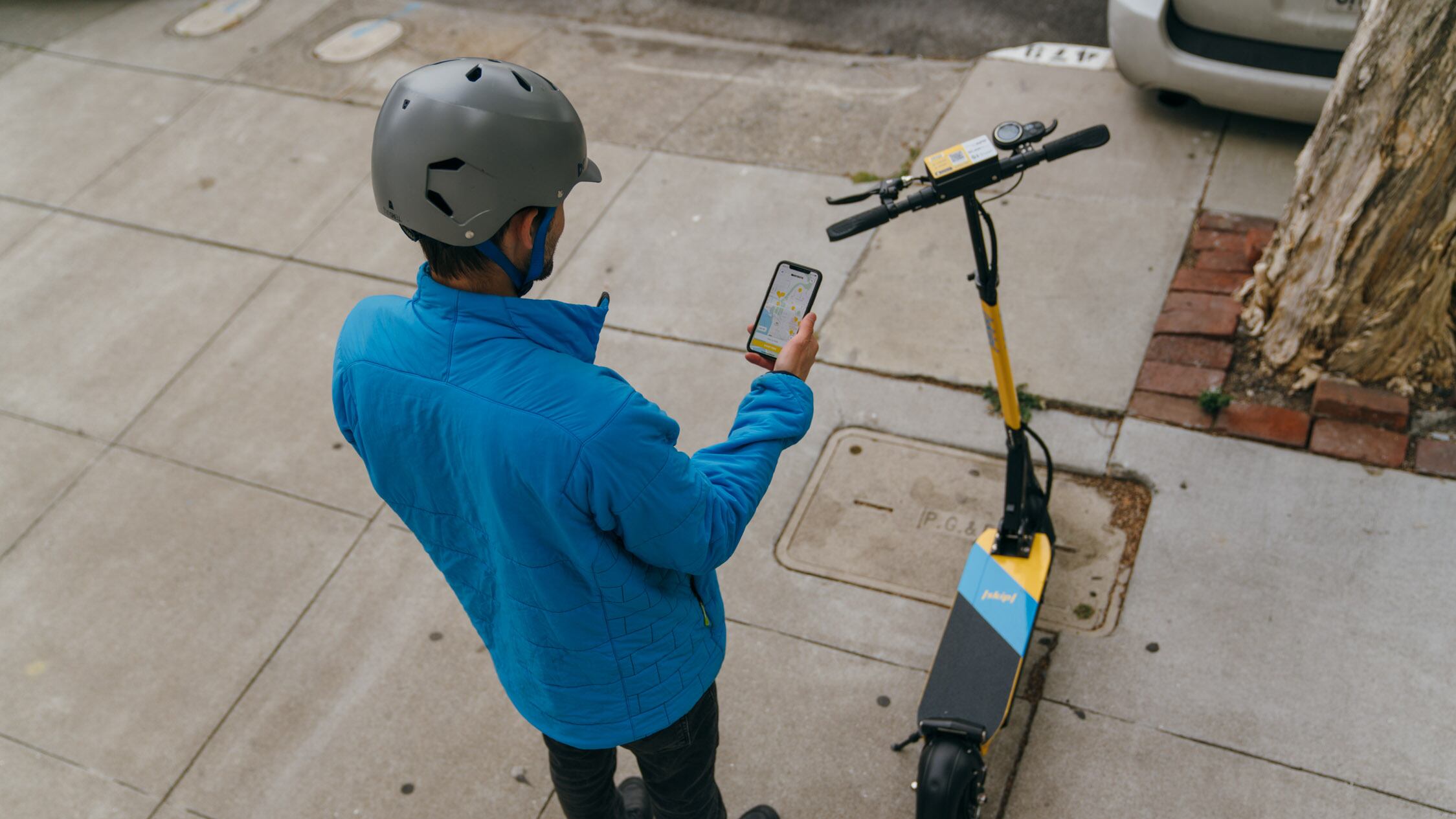One of the three e-scooter companies operating in Portland has proposed to city officials an unconventional plan for re-charging the devices: Have homeless people ride them each night to a plug-in station.
In its application to Portland transportation officials, the startup Skip describes its ideas for how its scooters could benefit citizens if it's allowed to operate the machines in Portland beyond Nov. 20.
"Our lines of communication are open to identify new and innovative ways to support lower income residents obtain skills and experience and be a part of enhancing the civil and economic vitality of Portland," the application reads.
One of those ideas is to enlist homeless residents to help collect dead scooters for charging, in exchange for food and money.
"We plan to offer homeless residents the opportunity to pick up and ride a scooter to our depot or other charging center," the document says, "in exchange for a drop off fee and, at certain times of the day, a hot meal."
Charging the battery-powered scooters is one of the challenges startups are trying to solve. Right now, they pay contract workers—sometimes called "scouts" or "juicers"—to collect the dead scooters at night and charge them at home.
Via a public records request, WW obtained a copy of the application the company submitted to the Portland Bureau of Transportation on July 12 to be approved for a four-month pilot-program permit.
In it, the San Francisco-based company pledges to meet city requirements that it extend its services to poor people. Hiring homeless residents to ride the scooters to charging is one of those proposals.
A Skip spokesperson did not respond to WW's request for comment.
Israel Bayer, homeless advocate and former Street Roots executive director, supports the idea, but says it would take careful execution.
"Given the lack of income opportunities for people experiencing homelessness in our community," he says, "any effort to try to be able to engage people on street has the potential to be really good thing. But devil is in the details in how the program will work."
In the application, Skip also outlines the potential for "user equity plans"—which would fund low-income riders with a $120 scooter credit each month "with the goal of funding an average of two free rides per day."
Qualified users could include Portlanders who receive SNAP benefits and/or are enrolled in the Oregon Health Plan, Oregon Low Income Home Energy Assistance Program and Oregon LifeLine.
Skip's plans are highly speculative: The city still has to evaluate by Nov. 20 whether scooters on the streets have been a success and if they will be allowed to operate beyond the four-month pilot.

